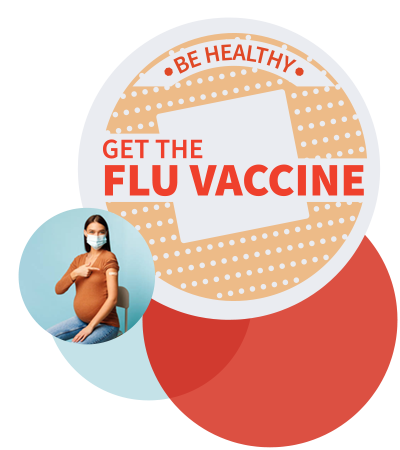What to Do If You Have the Flu
Flu symptoms can last from a few days to almost two weeks. The flu affects your respiratory system (organs that help you breathe), so common symptoms include:
- Cough
- Sore throat
- Runny nose
- Stuffy nose
The flu also affects your entire body and can cause:
- Fever
- Chills
- Aches
- Tiredness
- Vomiting
- Diarrhea
Flu complications
When some people get the flu, it also causes other health problems. These are called complications, and in some cases they can become life-threatening. Complications from the flu may include:
- Pneumonia
- Inflammation of the heart, brain or muscle tissues
- Organ failure (such as respiratory and kidney failure)
- Respiratory tract infections
- Worsening of chronic health problems (such as asthma, diabetes or heart disease)
If you get the flu, follow these tips
- Stay home and rest.
- Drink plenty of water and other clear liquids.
- Limit contact with others while you are sick.
- Once your fever is gone, stay home for at least 24 hours (except to get medical care).
- If you are worried about your illness, call HPSM’s Nurse Advice Line at 1-833-846-8773 or your primary care provider (PCP).
- If you are at high risk for serious illness from the flu, ask your PCP if antiviral medicines are right for you. Antiviral medicines can shorten the time you are sick. They can also help reduce the risk of flu complications. For antiviral medicines to work best, they must be started within two days of getting sick.
Visit the Centers for Disease Control and Prevention’s (CDC’s) website for more resources, such as:
- The emergency warning signs of flu (in children and adults).
- Videos on how to know if you have the flu and how to fight the flu.
